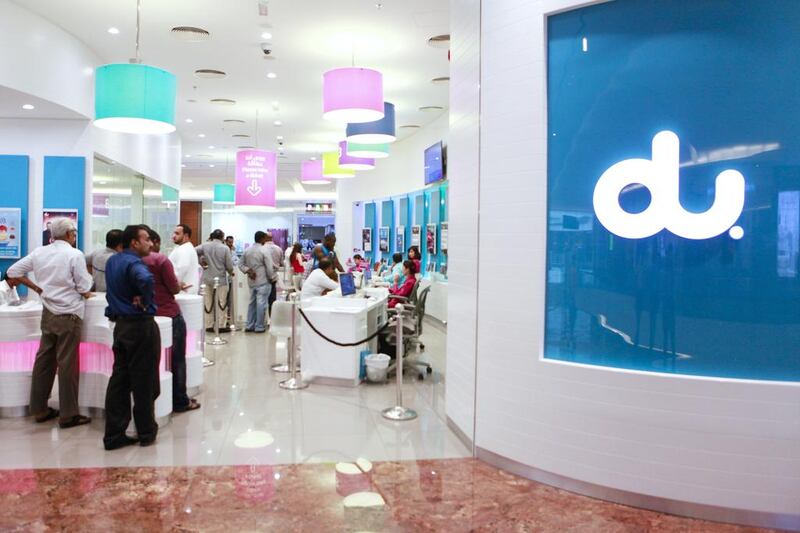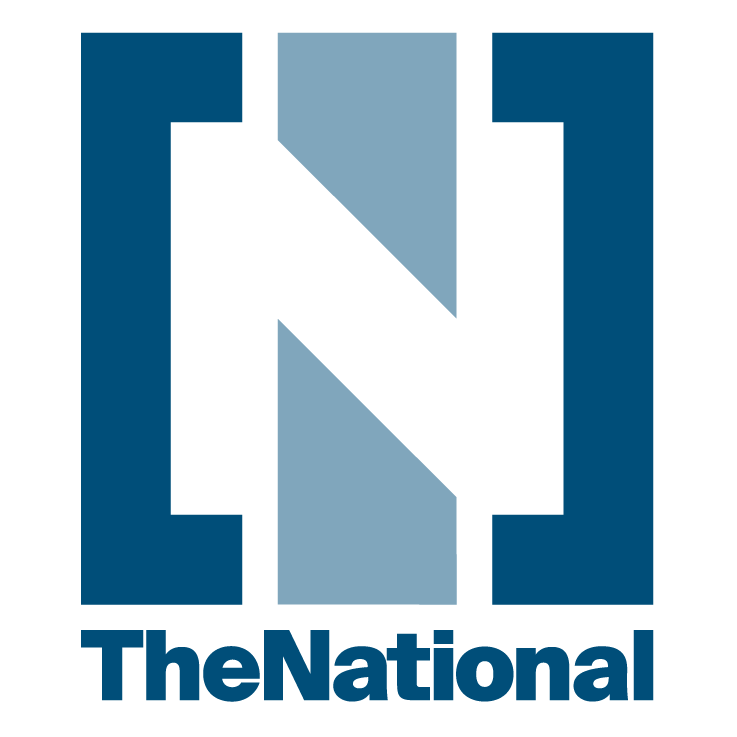Investors will be closely watching the performance of the shares of the telecoms operator du after one investment bank said it could soon follow rival Etisalat and loosen its foreign ownership restrictions.
Dubai-based Arqaam Capital said in a strategy note on Sunday that du is “the next candidate” in the telecoms sector for a change in its foreign ownership limits. Currently foreign ownership is restricted to non-UAE individuals only, excluding institutions from holding shares.
Du’s shares closed 3.85 per cent higher yesterday at Dh5.40, its highest level since July, amid a wider market rally.
In June, the UAE Government announced the opening up of Etisalat – the country’s biggest publicly traded company – to overseas investors for the first time. Etisalat’s shares have rallied about 40 per cent since June 18 compared to a 9 per cent rise for du in the same period.
The landmark decision was the culmination of years of talks and allowed, from September, as much as 20 per cent of the company to be owned by foreign investors.
The federal government remains the largest shareholder in Etisalat, with the Emirates Investment Authority holding a 60 per cent stake. Similarly, the largest shareholders in du are the Emirates Investment Authority with about 40 per cent and Mubadala, with about 20 per cent.
Nishit Lakhotia, the head of research at Securities & Investment Company (Sico) in Bahrain said any move to loosen foreign ownership restrictions “will be a government decision” as management “doesn’t know when it is likely to happen” and “foreigners may not get voting rights, similar to in Etisalat’s case”.
According to Arqaam, a change in the restrictions would result in an "increase in liquidity … enough for it to qualify for the MSCI Emerging Markets Index after 12 months". Etisalat shares were included in December, giving it access to the billions of dollars held by the emerging markets fund managers that must track the index.
However, Tibor Bokor, head of TMT research at Arqaam Capital, said in yesterday’s note that inclusion in the MSCI index would take longer for du compared to Etisalat because of the relatively lower liquidity in du’s shares. Once it is included, according to Arqaam, it could pave the way for further easing of ownership restrictions for du.
“In the future, we would not be surprised if a secondary public offering is made and the foreign ownership limit increases even further [than 20 per cent], but we would expect this to happen at more attractive valuations following MSCI inclusion,” Mr Bokor said.
Du said that no decision has been taken, but it did not dismiss the possibility of opening to foreign ownership.
“Any decision to lift restrictions on foreign institutions owning du shares is one to be made by our Board, and at this stage our Board has not made any such decision,” said Osman Sultan, du chief executive. “We remain open to the possibility of a change in foreign ownership restrictions.”
This is not the first bout of speculation over a change in the foreign ownership rules for du. Following the Etisalat announcement in June, du’s shares surged on the possibility it could follow its rival’s move.
“Du will be an attractive stock for foreigners. The stock is safe, has a good yield, and strong cash flows,” said Sico’s Mr Lakhotia.
malrawi@thenational.ae
selgazzar@thenational.ae
Follow The National's Business section on Twitter





